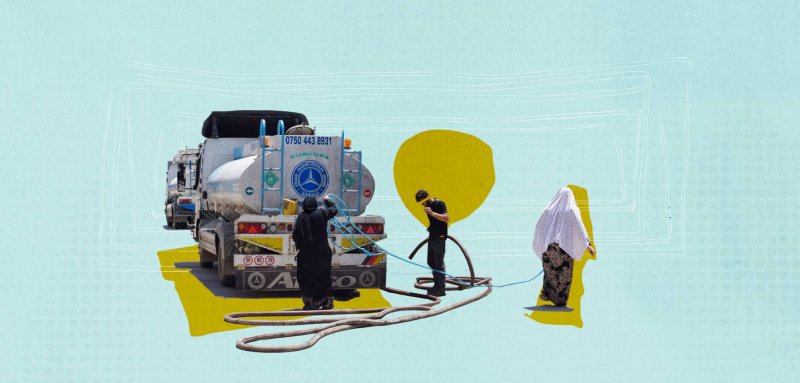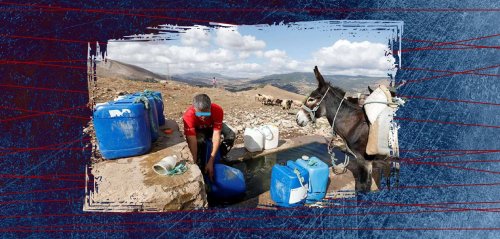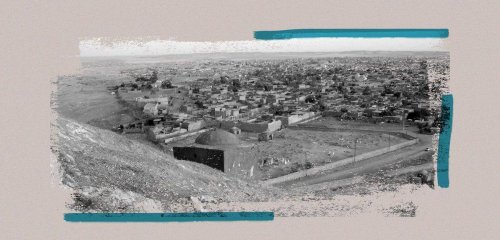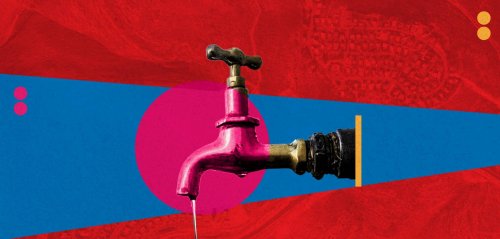Their water tanks depleted, residents of the Gulan neighbourhood in Erbil emerged from their homes, halting traffic along the bustling 100-Meter Road. Many had been surviving without water in extreme temperatures exceeding 40°C for several days.
On July 11, their protest was short-lived. After making their point, the crowd dispersed, and the traffic slowly began to resume. The neighbourhood sunk back into the languid rhythm of a hot summer afternoon. However, the residents' actions were far from over, and they were not alone in their plight.
This summer, Erbil, the capital of Iraq's Kurdistan Region, has witnessed dozens of minor protests against the persistent water shortages. This issue, which has been plaguing the city for years, appears to be worsening as the region contends with the escalating impacts of climate change and ongoing drought.
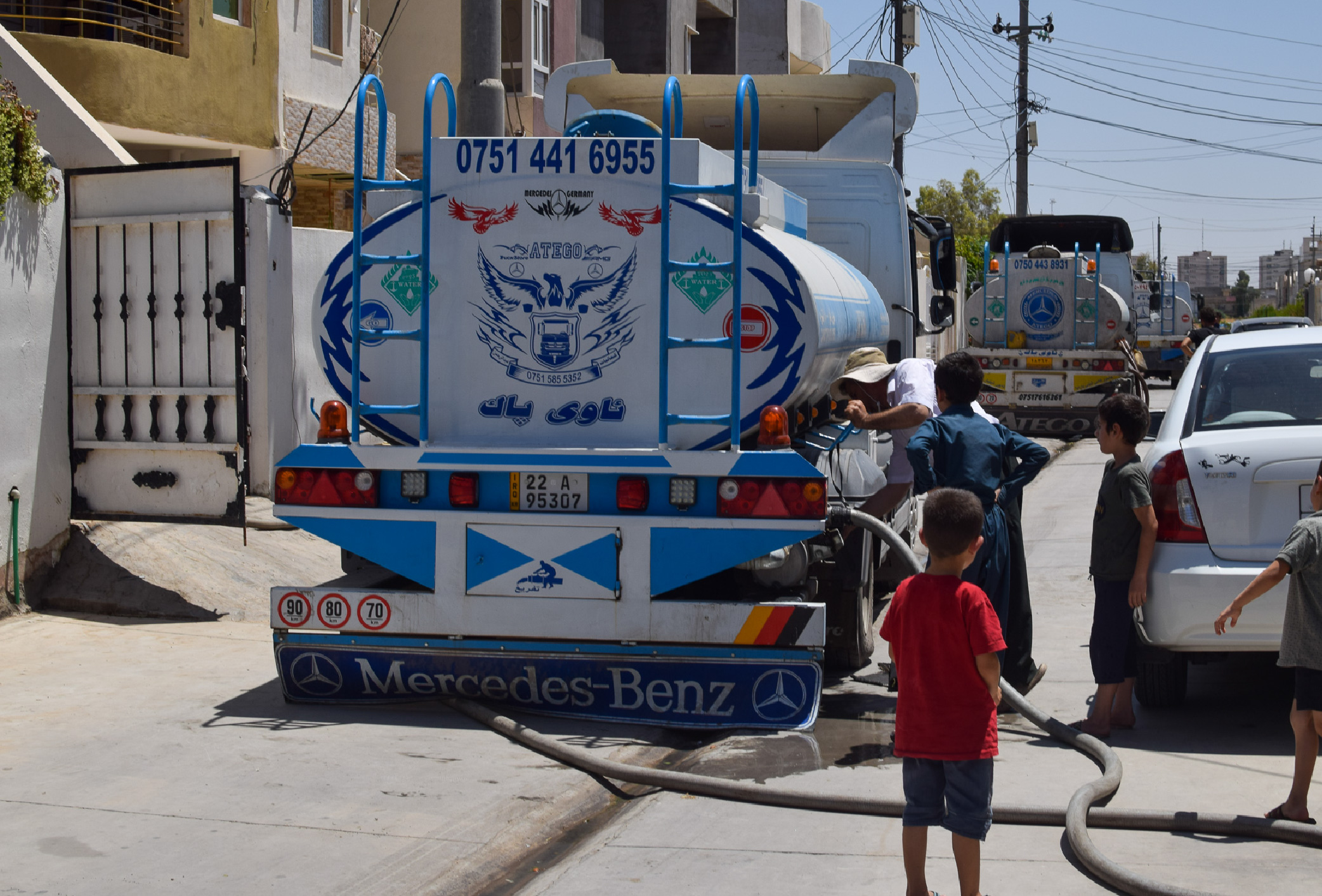 Water scarcity in Erbil
Water scarcity in Erbil
In the nearby Simi Khatunawa neighbourhood, resident Gawhar Omer shared her family's struggle with Raseef 22. She revealed that their home had been without water service since the day before Eid al-Adha, three weeks prior.
“My husband has to fetch water from his parents' house in Havalan with our car. We can't afford to purchase water from water trucks,” she lamented, stating that they had been grappling with water shortages for the past eight years.
Her neighbours have taken to the streets in protest twice this month, but their pleas for water seem to have fallen on the deaf ears of local political leaders.
"We have expressed our dissatisfaction annually," she said. "Why must we endure this struggle year after year?"
#WaterCrisis in Erbil intensifies as soaring temperatures plague the region. Residents protest, yet pleas fall on deaf ears. 'Why must we endure this struggle year after year?' asks a local, underscoring the human toll of climate change in Iraq's Kurdistan
Erbil's groundwater depletion: An emerging crisis
Unlike Iraq's southern governorates, the Kurdistan Region has largely been shielded from the harsh realities of living without water - but the signs of distress are starting to emerge. As the population of major cities continues to swell, the region's infrastructure and water table are struggling to keep pace.
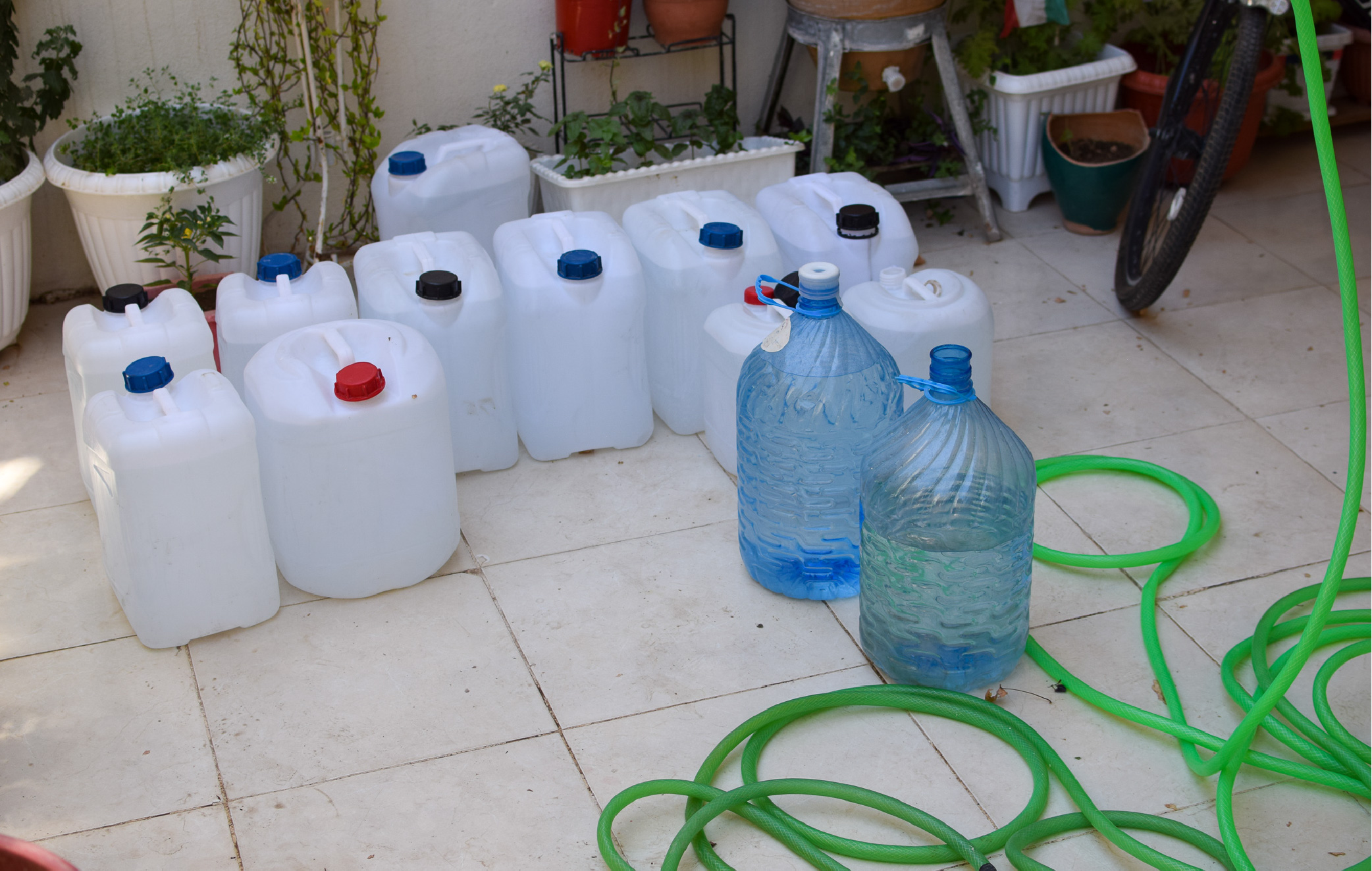 Water scarcity in Erbil
Water scarcity in Erbil
Sixty percent of Erbil's water is sourced from over 1,240 wells spread across the city, while the remainder is piped in from the Ifraz water treatment plants located 30 kilometres to the north on the Great Zab River. These facilities supply water to several neighbourhoods, but others, still disconnected from the distribution network, depend on wells.
A report from STOP, a local NGO, indicates that wells in the city, initially dug to 100 meters deep in the 1960s, had descended to around 250 meters by the millennium due to the city's rapid growth. Presently, boreholes are being drilled to a staggering depth of at least 700 meters to reach the water table. However, even these extreme measures might not be enough in the coming years.
Binaslawa's director of water and sewerage told local broadcaster Rudaw that 14 wells in the area have entirely dried up. “Overexploitation of groundwater can lead to the depletion of the aquifers, causing long-term environmental damage and further water scarcity,” warned Bnwar Rzgar Abdulrahman, a project manager at Waterkeepers Iraq.
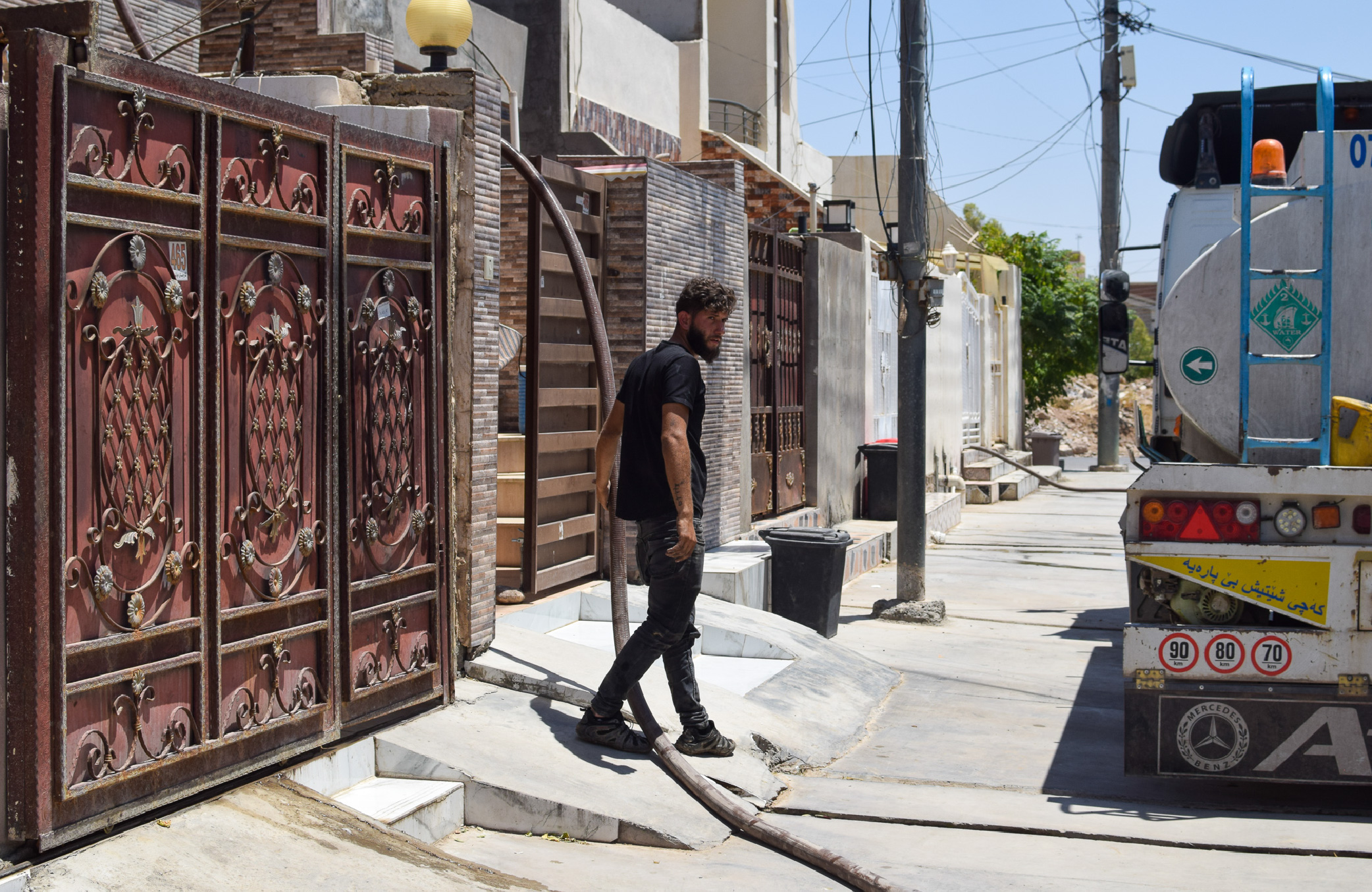 Water scarcity in Erbil
Water scarcity in Erbil
Local media has covered water shortage protests, but their brevity and scattered locations make consistent reporting challenging. On occasion, authorities have even blocked reporters from covering the protests.
Erbil's #WaterCrisis intensifies as overuse and climate change deplete groundwater reserves. Long-term solutions remain elusive, risking a dire future. The crisis not only threatens the environment but also deepens socio-economic disparities in the region
The crisis has become so dire that local politicians are being forced to address the issue publicly. “We are in a really bad situation regarding underground water, especially during summer,” Erbil Governor Omed Khoshnaw confessed in a July 18 interview.
The governor admits the ultimate plan is to complete a fourth water treatment plant at Ifraz to lessen reliance on wells, but the new facility won't be operational for some time. The plan carries risks, however, given Turkey’s upstream damming program, which has significantly reduced the amount of water flowing into Iraq.
Despite this crisis, certain water-intensive residential projects in Erbil, like the Erbil Hills Golf Club and the Pavilion, continue their development. This stark contrast fuels the anger driving protest movements across the region.
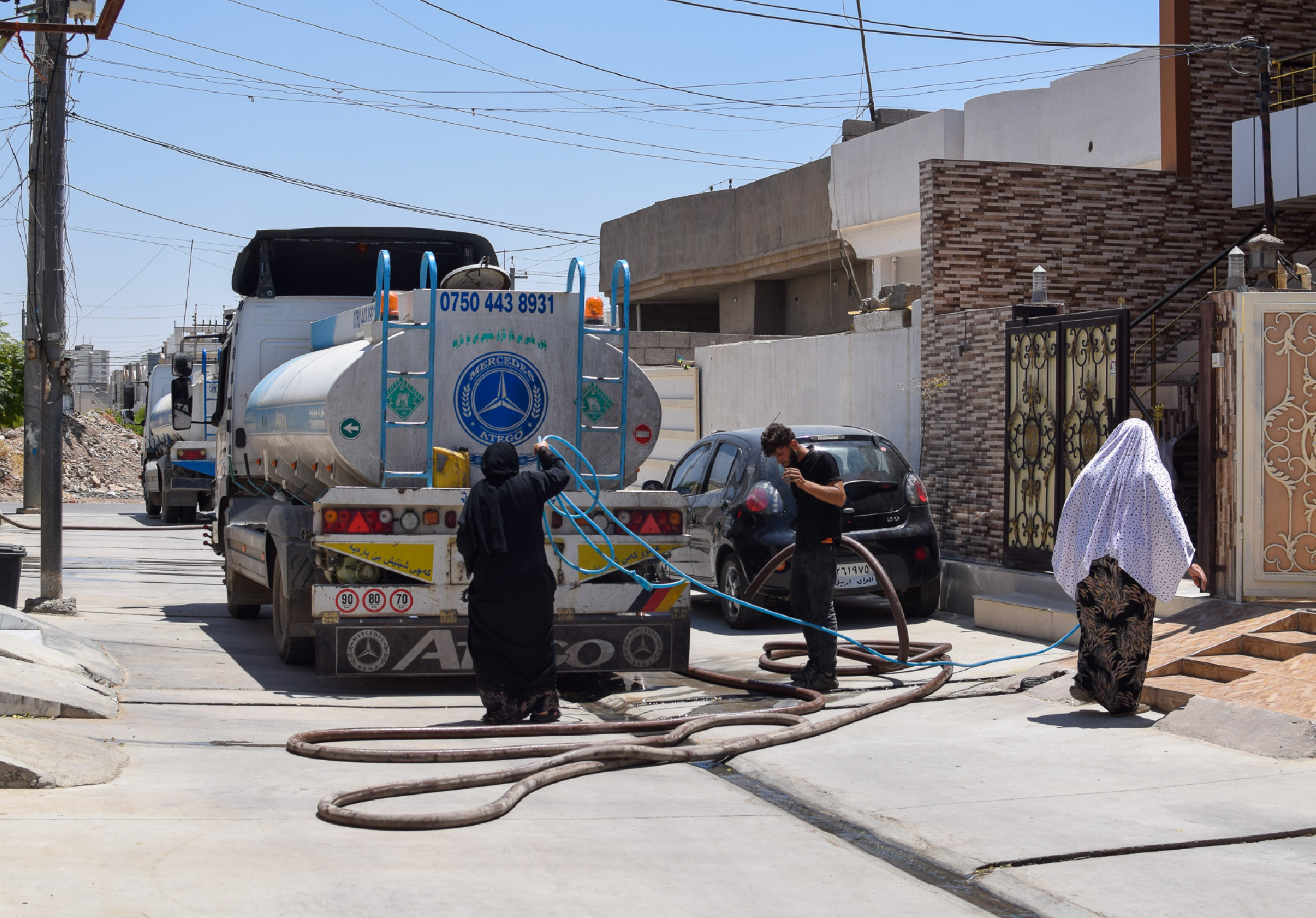 Water scarcity in Erbil
Water scarcity in Erbil
Iraq, the world's fifth most-vulnerable country to climate change effects, is facing a multi-year drought that has devastated the country's farmland and famed marshes. Amid this disaster, governments in Erbil and Baghdad often fail to provide basic public services, further widening the gap between different classes.
Authorities have been aware of Erbil’s water issues for years, yet long-term solutions remain elusive. As the climate grows hotter and drier, residents are forced to make challenging decisions. “The more time we lose, the worse the situation gets, and the more difficult the solutions become,” warns Abdulrahman. The future of Erbil city is at stake as water supplies fail to meet growing demand, especially during the summer months.
Raseef22 is a not for profit entity. Our focus is on quality journalism. Every contribution to the NasRaseef membership goes directly towards journalism production. We stand independent, not accepting corporate sponsorships, sponsored content or political funding.
Support our mission to keep Raseef22 available to all readers by clicking here!
Interested in writing with us? Check our pitch process here!
